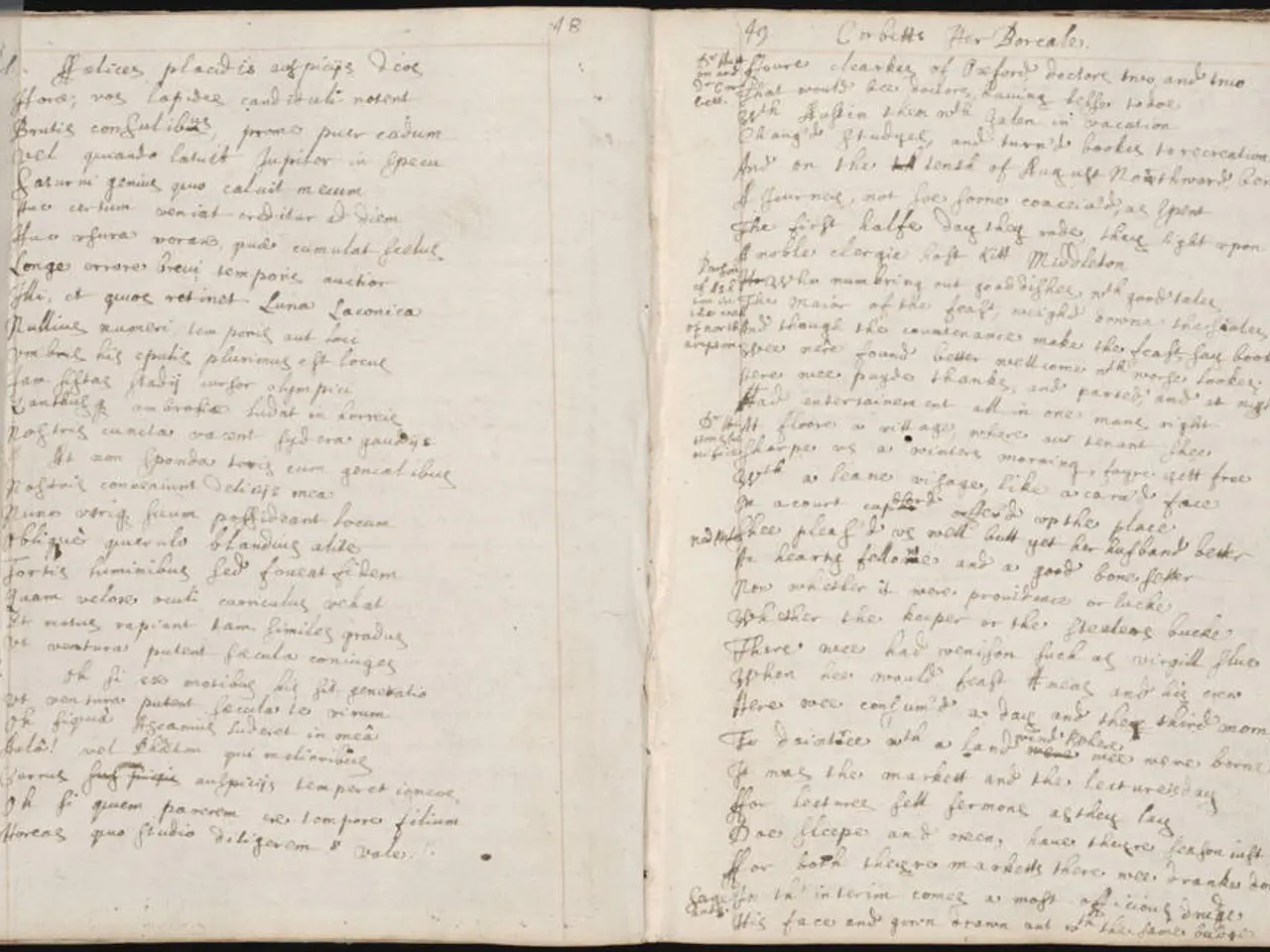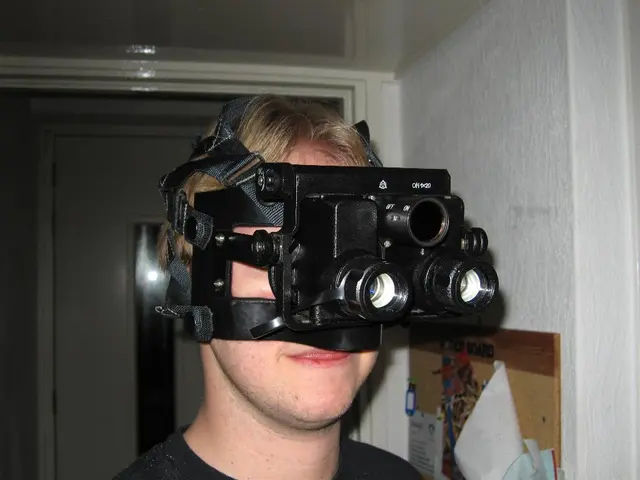Crafting Authentic Tales of the Past with Edge: Writing Historical Screenplays
Writing a historical script requires a blend of meticulous research, creativity, and a deep respect for the era being explored. Here's a guide to help you craft a captivating period piece.
## Research and Accuracy
Conduct thorough research on the era, events, and cultural practices of the time period. Ensure accuracy in historical details to maintain authenticity. Use resources like historical document transcription and manuscript description to gain insight into the past. Tools like Final Draft or Celtx can help organise your script structure and ensure a coherent narrative flow.
## Dialogue and Language
Use language appropriate for the time period, including expressions and idioms. Dialogue should be natural and fitting for the characters and their context. The Beat Sheet tool on a website can help keep a period-accurate plot on track.
## Character Development
Characters should be well-developed and reflect the values and beliefs of their time. Use historical figures as inspiration but avoid stereotypes.
## Show, Don't Tell
Instead of narrating events, show them through action and dialogue. Similar to Hemingway's "iceberg theory," much of the context should be implied rather than explicitly stated.
## Cinematic Techniques
Use lighting, color palette, and set design to create an immersive historical environment.
## Examples of Historical Scripts
"Schindler's List" (1993) is a well-researched historical drama that uses cinematic techniques to convey the horrors of the Holocaust. "The Imitation Game" (2014) effectively captures the historical context of Alan Turing's story during WWII, balancing historical accuracy with compelling character development.
## Genre Fusion and Underrepresented Stories
While accuracy is important, great storytelling sometimes means bending history to serve a theme or character. Historical scripts aren't limited to just dramas and biopics; they can also be horror, romance, war films, or mystery/thrillers. Abraham Lincoln: Vampire Hunter (2012) is an example of a genre fusion that delivers outrageous entertainment with a real-life figure given a supernatural twist.
When choosing an era, consider what fascinates you about it, what kinds of conflicts naturally occurred, and if there are untold or underrepresented stories worth exploring. Primary sources, such as letters, newspapers, and court records, are recommended for historical research.
## Period Dramas and High-Stakes Stories
Period dramas emphasise character relationships, societal pressures, and internal conflict. Pride & Prejudice (2005) is a historical romance that demonstrates how high-stakes barriers to love make each glance or word charged with meaning.
Historical scripts aim to capture the essence of a specific era while telling an engaging story that either mirrors historical truth or plays imaginatively with it. Dunkirk (2017) and Saving Private Ryan (1998) are examples of war movies that benefit from immersive realism, high stakes, and emotional clarity.
Christopher Nolan's Oppenheimer (2023) is a masterclass in historical storytelling that explores ethical dilemmas, scientific ambition, and political paranoia, all rooted in deeply researched history. Peaky Blinders (2013-2022) is a crime drama set in post-World War I Birmingham that blends historical grit with gripping crime drama.
In conclusion, writing a historical script is a rewarding challenge that demands dedication, creativity, and a deep understanding of the chosen era. By following these tips, you can create a script that is both engaging and historically respectful.
In the pre-production phase of writing a historical script, screenwriters should delve into home-and-garden research to create an immersive environment, such as understanding the culture's lifestyle, architecture, and décor of the time period. Moreover, during the screenwriting process, it's essential to ensure dialogue and language are authentic, reflecting the historical epoch's speech patterns and expressions, enhancing the overall period piece's believability.




